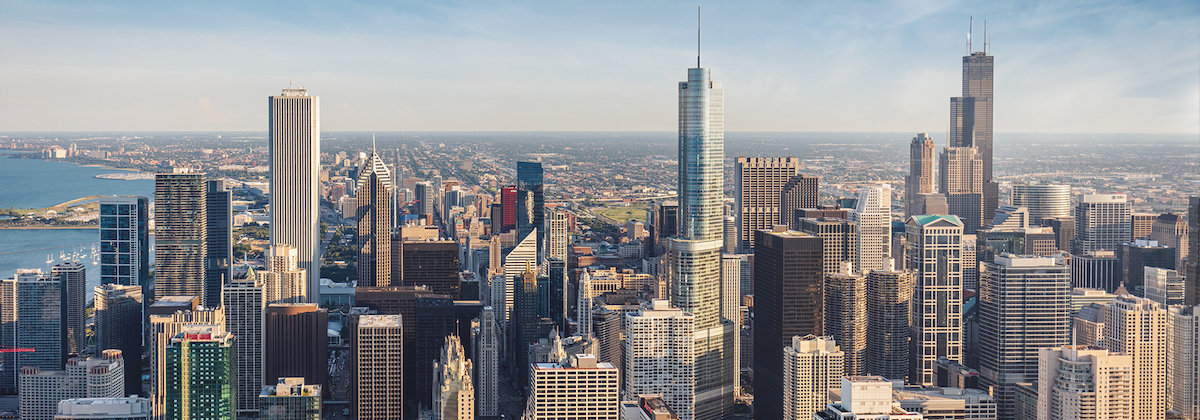Attorneys of Chicago | March 5, 2023 | Car Accident
A right of way in traffic law means the right to proceed. Yielding the right of way means that a driver cannot proceed until the other vehicles have passed or a traffic signal gives the driver the right to move forward. Failing to yield the right of way is one of the most common causes of car accidents in Chicago.
What Are the Right of Way Laws in Chicago, Illinois?
The Illinois Vehicle Code explains when drivers have the right of way in various situations. For example, when drivers approach an intersection at about the same time from different directions, the vehicle on the yields the right of way to the vehicle on the right. (625 ILCS 5/11-901). However, this right of way can be modified by other laws and at through highways.
For instance, §11-901.01 explains that drivers approaching a “T” intersection from the direction that ends at the intersection must yield the right of way to traffic on the non-terminating highway. However, this rule can be modified by traffic signals and lights.
Another example is found in §11-902. It states that vehicles turning left yield the right of way to traffic approaching from the other direction. Of course, this law is also subject to traffic lights that give a person turning left the right of way (i.e., a green turning arrow).
There are also right-of-way laws pertaining to pedestrians. Typically, pedestrians have the right of way when crossing in a marked crosswalk. However, a pedestrian traffic signal could direct when pedestrians have the right of way at an intersection controlled by traffic lights.
In addition to pedestrians and traffic, Illinois right-of-way laws also include who has the right-of-way when encountering funeral processions, emergency vehicles, construction zones, school buses, bicyclists, and railroad crossings.
How To Avoid Right-of-Way Traffic Accidents in Chicago
All Illinois drivers are expected to know and understand the Illinois Rules of the Road, including the rules for rights of way. The rights of way are explained in the driver’s manual. In addition to understanding these laws, a driver must follow road signs and obey traffic signals.
In addition to yielding the right of way, drivers must use caution when merging. The traffic moving in the direction you are merging has the right of way. Therefore, it is crucial to check blind spots and ensure sufficient room to merge into a traffic lane before entering the roadway.
What Happens if a Driver Fails To Yield the Right of Way?
There are several traffic offenses for failing to yield the right of way. A driver convicted of failing to yield the right of way might face fines and points added to their driver’s license. In addition, if a driver causes a traffic accident when failing to yield the right of way, the driver could be liable for damages.
Illinois is an at-fault state for traffic accidents. If a driver causes a traffic accident, the driver can be responsible for the accident victim’s injuries and losses.
All drivers must have a minimum amount of liability car insurance. Liability insurance pays the accident victim for damages when the insured driver causes the accident. However, the insurance company is only liable for damages up to the policy limits.
Therefore, an accident victim can sue an at-fault driver for damages not covered by the insurance company. The victim can sue the at-fault driver if their insurance company refuses to pay a claim or agree to a reasonable settlement amount.
What Damages Can I Receive for a Chicago Failure To Yield the Right of Way Car Accident?
Damages in a Chicago car accident case include economic damages. These damages reimburse you for your monetary losses and expenses related to the car accident. Examples of economic damages include:
- Cost of personal care
- Assistance with household chores
- Medical bills
- Out-of-pocket expenses
- Lost wages
- Rehabilitative therapies
- A decrease in future earning capacity
An accident victim is also entitled to compensation for their non-economic damages. These damages compensate you for the pain and suffering you experienced because of the car crash. Examples include:
- Physical pain and suffering
- Loss of enjoyment of life
- Mental anguish
- Scarring and disfigurement
- Emotional distress
- Impairment and disability
- Diminished quality of life
A few car accident cases might include punitive damages. These damages are awarded by jurors when the injured party proves the at-fault driver acted with an “evil motive” or “reckless and outrageous indifference.” However, punitive damages are only awarded in a small number of car accident lawsuits.
The other driver’s insurance company might make a settlement offer if you were injured in a car accident. However, your claim could be worth more money. A Chicago car accident lawyer can review your case during a free consultation and explain your legal options for recovering maximum compensation.
Contact Our Chicago Car Accident Law Firm For Help Today
If you’ve been injured in an accident in Chicago, Illinois, and need legal help, contact our experienced car accident lawyers at Attorneys of Chicago Personal Injury Lawyers to schedule a free consultation today.
We proudly serve Cook County and its surrounding areas:
Attorneys of Chicago Personal Injury Lawyers
134 N La Salle St #2160
Chicago, IL 60602
Phone: (872) 324-4375
Hours: 24/7
Our firm is located near you. We have an office in Chicago
Find us with our GeoCoordinates: 41.5486783,-87.8377085
